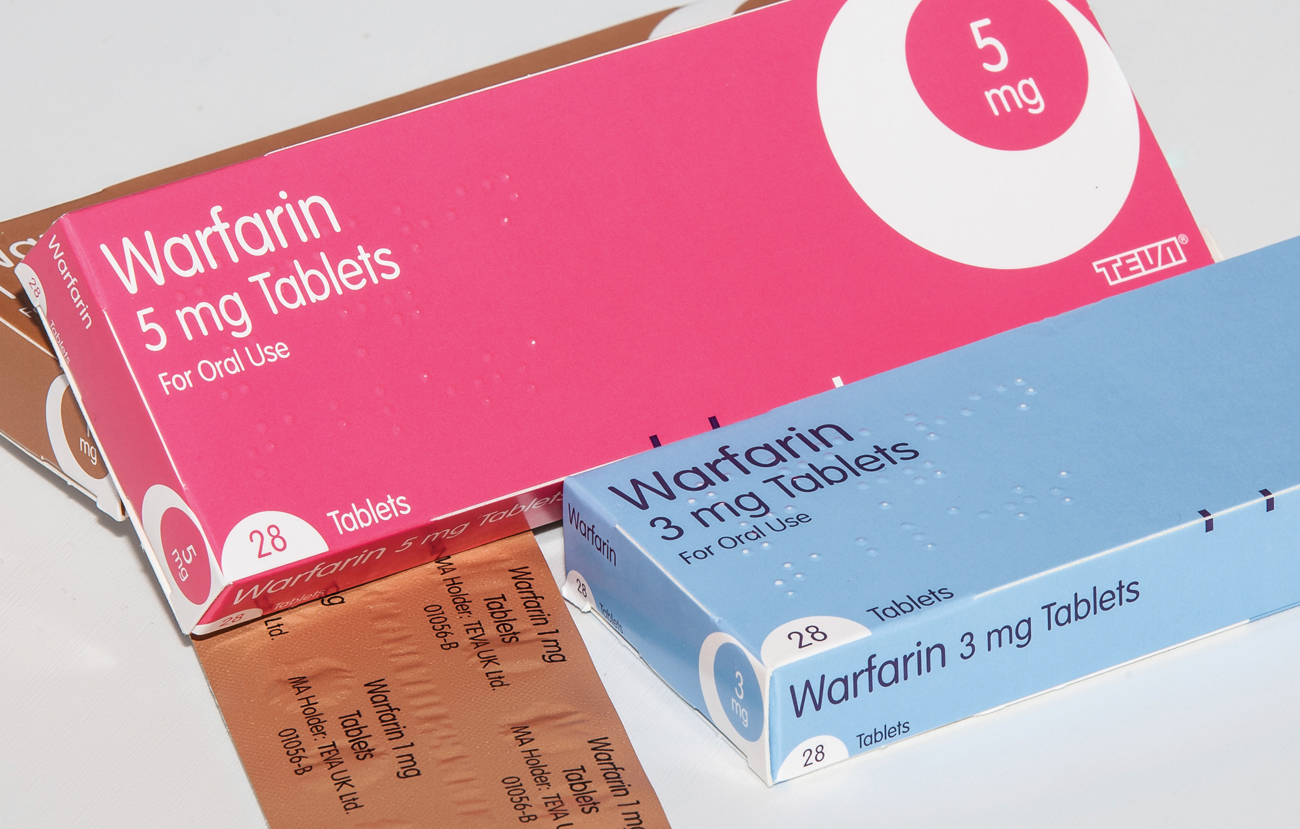Elevated INR seen in patients on anticoagulants during pandemic
In News
Follow this topic
Bookmark
Record learning outcomes

There has been an apparent increase in the number of patients taking warfarin found to have elevated INR values during the Covid-19 pandemic.
Most, but not all patients had suspected or confirmed Covid-19 infection while others had recently been treated with antibiotics according to King’s College Hospital, which flagged the issue.
In other patients, the lockdown may have affected access to green vegetables and led to increased alcohol consumption, while the psychological impact of social distancing may have affected adherence to regular medication.
The MHRA is reminding health professionals that acute illness may exaggerate the effect of warfarin tablets and necessitate a dose reduction. Continued INR monitoring is important in patients taking warfarin or other vitamin K antagonists (VKA) if they have suspected or confirmed Covid-19 infection, so they can be clinically managed at an early stage to reduce the risk of bleeding.
Some patients taking warfarin may have been switched to direct-acting oral anticoagulants (DOAC) during the pandemic to avoid regular blood tests for INR monitoring. VKAs interact with a large number of medicines, while DOACs including Eliquis (apixaban), Lixiana (edoxaban), Pradaxa (dabigatran) or Xarelto (rivaroxaban) also interact with several medicines.
Patients with Covid-19 may be treated with antibiotics in line with NICE guidance and may also be treated with antivirals. There is the potential for drug-drug interactions between oral anticoagulants (VKA or DOACs) and certain antibiotics and antivirals, the MHRA adds.
Patients attending for INR tests or who are collecting prescriptions for vitamin K antagonists (VKA) should be asked to let their GP know if they have symptoms of, or confirmed Covid-19 infection, because it is important that they continue to have their INR monitored while they are ill, the MHRA is advising.
Patients taking VKA should let their GP and healthcare team know about any recent changes to their diet (including alcohol consumption), smoking habits, any new medicines or supplements they are taking, and of the need to carefully follow the instructions for use for anticoagulant medication.
